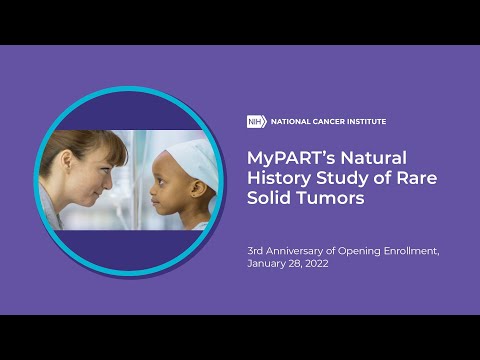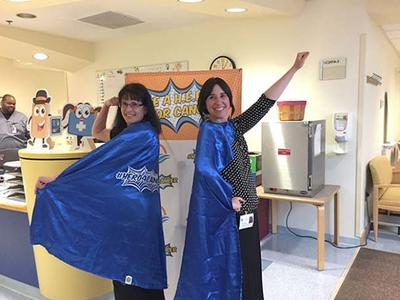Participate in MyPART
The MyPART network works best when everyone works together. We need patients, families, and advocacy organizations to help us learn as much as we can about rare cancers. Learn more about how you can participate in MyPART’s work to improve the lives of children, teens, and young adults with rare cancers.

Natural History Study of Rare Solid Tumors - 3rd Anniversary of Opening Enrollment
-

Natural History Study of Rare Solid Tumors
The purpose of a natural history study is to collect information, tissue and tumor samples, and data from patients to better understand how cancer develops and grows. When researchers don’t know how cancer grows it is much harder to design trials to test new treatments. Natural history studies help researchers understand cancer better.
-

Participating in a Clinical Trial for Rare Cancer
By joining a clinical trial or study, you may get access to a new drug, or a chance to see world-renowned doctors. You are also helping future rare cancer patients by helping researchers today.
-

The Role of Advocacy in MyPART
In the MyPART network, our mission is to engage patients as partners in rare tumor research. Advocacy groups like yours are a critical bridge between patients and researchers as you help share your experience and expertise between these groups. Non-profit organizations dedicated to improving the experiences and outcomes of people with rare solid tumors are important members of the MyPART network.
-

MyPART Advocacy Partners
Several patient advocacy organizations have joined the MyPART Network as partners.
-

Rare Tumor Clinics
Each year, staff at the Center for Cancer Research and the MyPART team host clinics on select rare cancers at the NIH Clinical Center in Bethesda, MD.